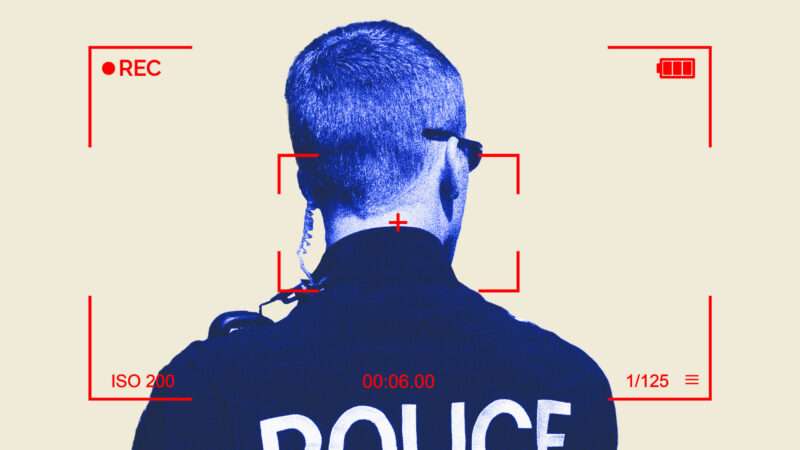
Recording the police can be an effective tool for transparency and oversight, but a new report shows how far the New York Police Department will go to keep from being filmed.
Courts have generally upheld a right to film so long as citizens don't physically obstruct official police business. But police departments are constantly relitigating the question. In 2018, for instance, North Carolina police claimed that a right to record the police did not include a right to livestream the police. A federal appeals court rejected that argument in February.
This week, an article in Gothamist profiled "First Amendment auditors" who film in government buildings, including police stations, to test the boundaries of what is and is not allowed. One activist in particular, SeanPaul Reyes, posts his encounters with police in New York City on the YouTube account Long Island Audit. He has been arrested multiple times for filming.
The NYPD claims that while recording police may be okay, recording inside a police station is not. A department spokesperson told Gothamist that recording inside precincts is forbidden "because it undermines the privacy of people who interact with the criminal justice system and compromises the integrity of ongoing investigations."
This question is also not settled in jurisprudence. In 2020, the Superior Court of Pennsylvania ruled that the First Amendment did not protect filming in a police station lobby.
But New York City is different: After the NYPD banned filming within police precincts in 2018, the City Council passed the Right to Record Act, which codified an affirmative right to record police officers "acting in their official capacity, with limited exceptions." The bill contains no provisions that would prevent filming within police stations.
The law also required the NYPD to publish "the number of arrests, criminal summonses, and civil summonses in which the person arrested or summonsed was recording police activities." Gothamist reported that between 2021–22, there were more than 2,700 arrests of people who were recording police.
Notably, those 2,700-plus people were not arrested for filming the police but while filming the police. For example, in the fourth quarter of 2022, 396 people were arrested while filming the police; the most common offenses listed were second- and third-degree assault (62 total incidents), petit larceny (25 incidents), and resisting arrest (22 incidents).
Despite the law's passage, police remain hostile to being recorded. Last year, New York Mayor Eric Adams warned citizen videographers from standing too close to police while filming, suggesting that "If your iPhone can't catch that picture with you being at a safe distance, then you need to upgrade your iPhone."
Speaking to Gothamist, former NYPD Lt. Eric Dym accused activists like Reyes of "maneuvering and manipulating the law" and said they should consult with officers on the scene before filming. Before he retired last year, Dym had more civilian complaints than any other NYPD officer, including 52 allegations of misconduct; up to that point, the city had paid out more than $1.5 million to settle lawsuits in which he was named.
The NYPD's refusal to allow filming may not be legal. "It's kind of a delicate balance that depends on the situation," Stephen Solomon, editor of NYU's First Amendment Watch, told Gothamist. "But a blanket restriction typically is not consistent with the First Amendment."
The post NYPD Claims It's Illegal To Film in a Police Station appeared first on Reason.com.







